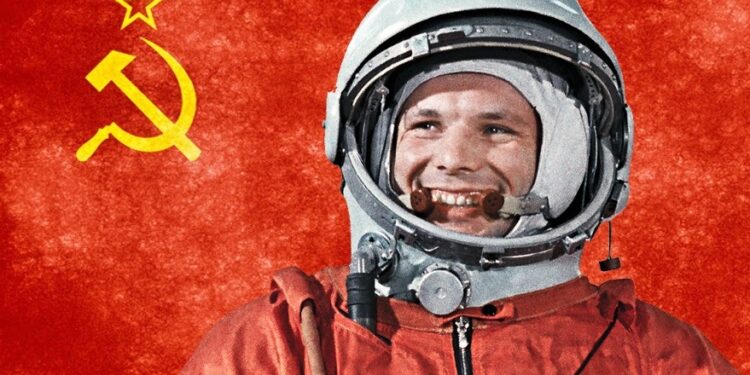On April 12, 1961, history was made when a 27-year-old Soviet cosmonaut named Yuri Gagarin became the first human to journey into outer space. His spacecraft, Vostok 1, completed a single orbit of the Earth in 108 minutes, marking a monumental milestone in the Space Race and altering the course of human exploration forever.
Born in a small village in Russia in 1934, Gagarin grew up during World War II and later trained as a pilot in the Soviet Air Force. His charisma, discipline, and physical fitness helped him stand out among thousands of candidates during the Soviet space program’s rigorous selection process. When he was chosen for the first manned space mission, his response reflected the spirit of the era: “Let’s go!” (Poyekhali!), a phrase that would echo across the world.
The launch of Vostok 1 was a triumph not just for the Soviet Union, but for humanity. Gagarin’s spacecraft reached an altitude of 327 kilometers (203 miles) and a speed of over 27,000 kilometers per hour. While the flight was fully automated, Gagarin maintained radio contact with ground control and reported on his status throughout the mission. Upon re-entry, he ejected from the capsule and parachuted safely to Earth near the Volga River.
Gagarin’s achievement had a profound impact on international politics, science, and culture. It stunned the United States and galvanized efforts to close the space gap, ultimately leading to the Apollo moon landings. Meanwhile, Gagarin became a global icon, celebrated as a hero not only in the Soviet Union but across the world. His humility, beaming smile, and working-class roots made him a beloved figure in both East and West during the Cold War.
Tragically, Gagarin died in a plane crash in 1968 during a routine training flight, but his legacy endures. Monuments, streets, and even craters on the Moon bear his name. April 12 is celebrated as Yuri’s Night and the International Day of Human Space Flight, commemorating the dawn of human space exploration.
Yuri Gagarin’s voyage was more than a technological feat—it was a leap of imagination that expanded the boundaries of what humanity thought possible. His courage paved the way for generations of astronauts and inspired the world to look toward the stars.
newshub



Recent Comments